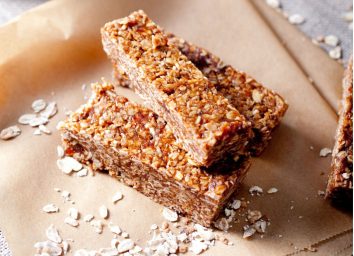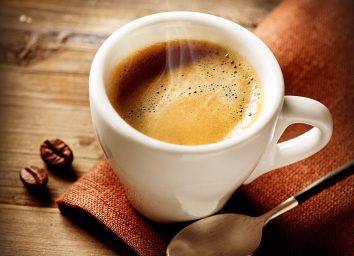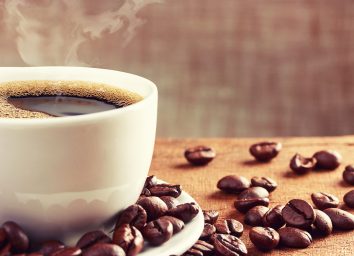The Unhealthiest Caffeinated Beverages on the Planet
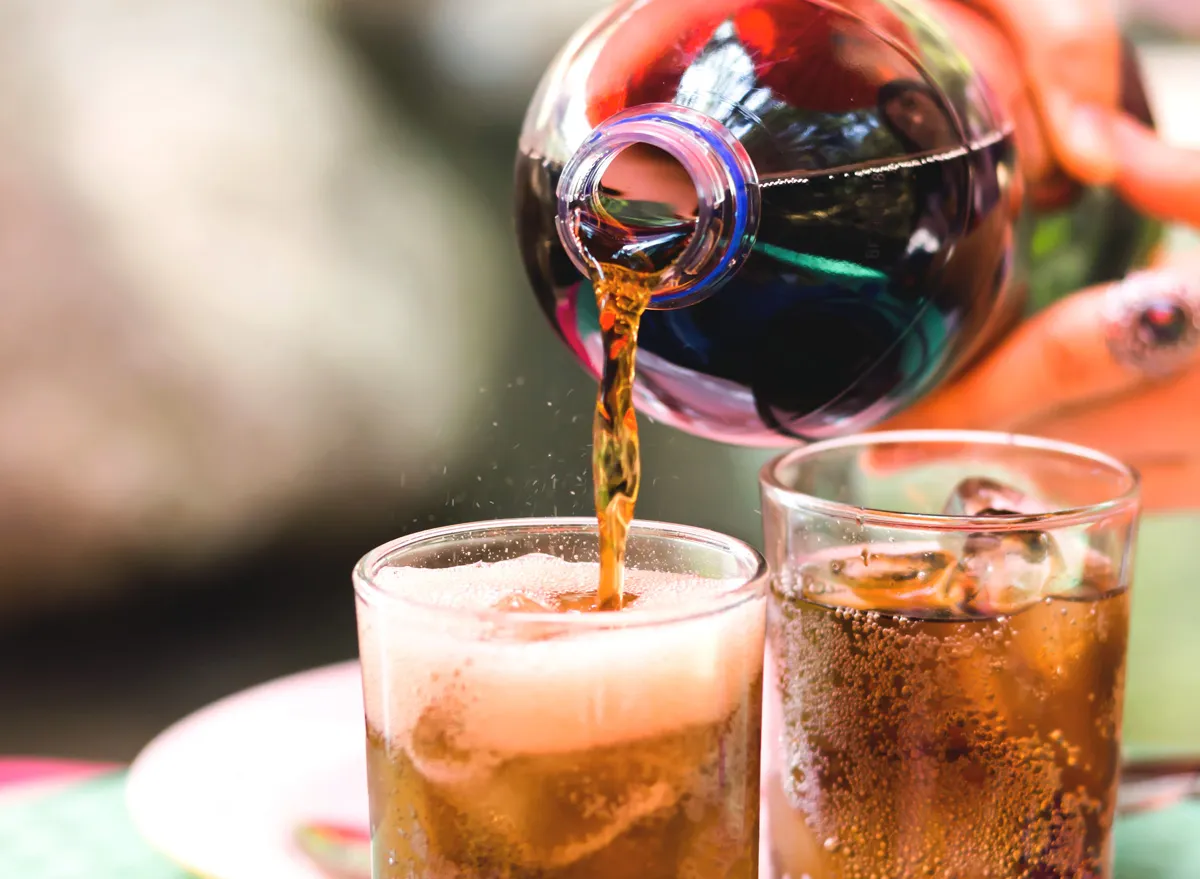
There's nothing like the buzz of operating on caffeine. Your to-do list shrinks at an impressive rate, fatigue feels like a foreign concept, and your heart beats faster, to the tune of productivity.
Here's the thing, though. When reaching for a caffeinated beverage, despite the number of options currently on the market, there are really only two healthy ways to go: black coffee or tea.
"Caffeine isn't bad for you when derived naturally, such as through high coffee beans and tea leaves," says Peter Bailey, MD. "However, when caffeine is created artificially and injected into drinks, it can become extremely unhealthy."
From classic staples like energy drinks to newer caffeinated options we hadn't heard about before, we spoke to experts and compiled an official roundup of the unhealthiest caffeinated beverages on the planet. Here's what they had to say, and for more healthy tips, be sure to check out our list of The 7 Healthiest Foods to Eat Right Now.
Energy drinks
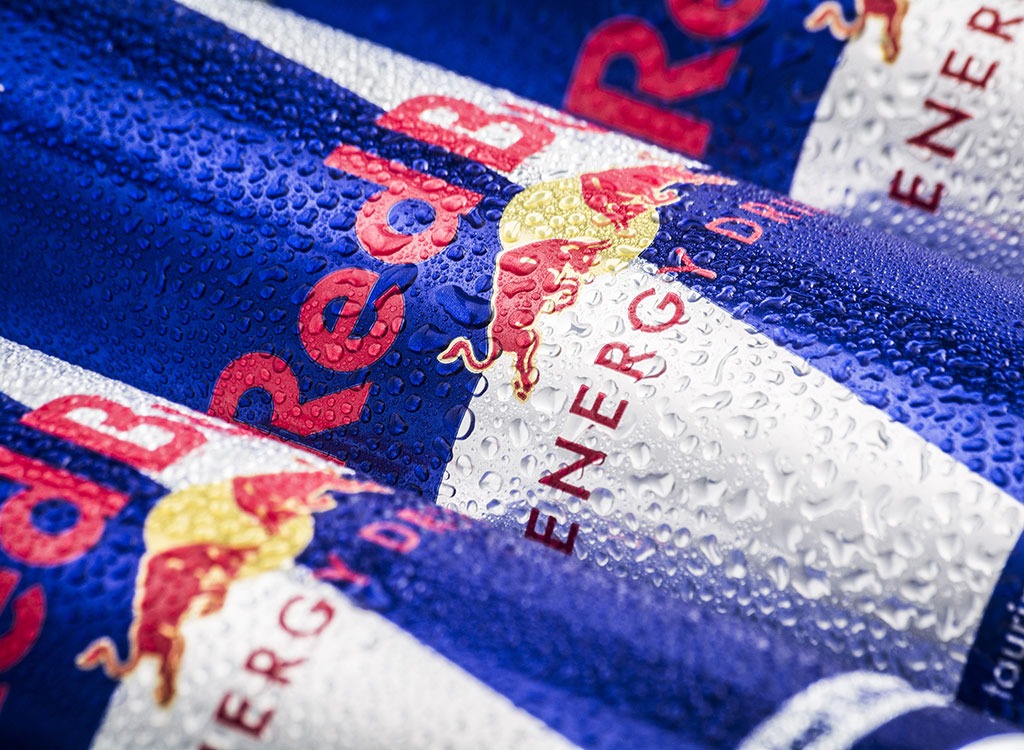
"The average sugar content of an energy drink is 54 grams, an alarming rate that can cause weight gain and poor digestive health," says Trista Best, MPH, RD, LD at Balanced One Supplements. "The intended purpose of energy drinks is to provide a dense amount of caffeine for the consumer."
Best explains that the unnatural amount of caffeine and sugar is not the safest bet for your energy boost. Instead, if you're coffee-averse, she recommends turning to other whole foods and natural supplements like B vitamins and l-carnitine—like these The 11 Best Food Sources of B Vitamins for More Energy.
Soda
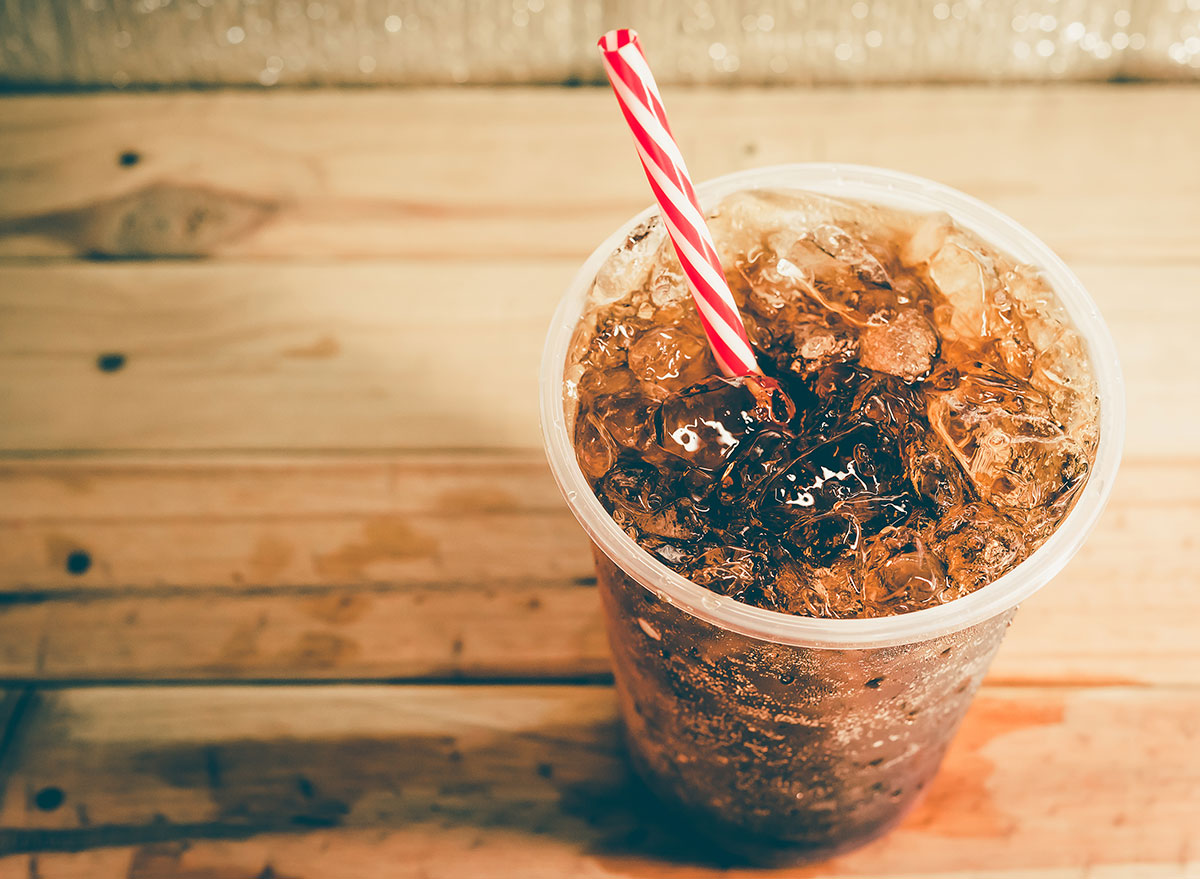
As a certified sleep science coach, Stephen Light knows a thing or two about the potentially detrimental effects of caffeine. He points to soda as one of the unhealthiest caffeinated beverages, explaining that "soft drinks containing caffeine are a double threat to your health. Not only do they have ridiculous amounts of sugar, but they also supply the body with caffeine unknowingly. The effects of sugar and caffeine can make you hyperactive and can negatively affect your circadian rhythm when consumed past 5 pm."
Apparently, Light said, caffeine is often used to enhance the flavor of soda. However, there usually isn't enough of it to actually quench a caffeine addict's thirst.
"Since people don't necessarily feel stimulated after drinking soft drinks, they might resort to drinking other caffeine-rich beverages," he explains, noting that this can lead to excess overall consumption.
Here's What Happens to Your Body When You Quit Soda For 100 Days.
Caffeinated water

For those who are up-to-date on the consumer market, caffeinated water probably doesn't come as a shock—it looks like it's been around since 2015. And while it's disguised as "healthy" because of the water, it had definitely landed on our list of unhealthiest caffeinated beverages because of its unnatural qualities.
"It is just what it sounds like—caffeine added to water," says Allison Gregg, RDN, LD/N Nutritional Consultant at Mom Loves Best. "Water does not naturally contain caffeine…this becomes problematic as water is then transformed from a natural, hydrating liquid into a liquid with an unnatural substance added."
Any time you take a substance from natural to unnatural, you're likely decreasing its health value. But the real kicker with caffeinated water, according to Gregg? "Some caffeinated waters contain more caffeine than energy drinks."
Get even more healthy tips straight to your inbox by signing up for our newsletter!
Sports drinks
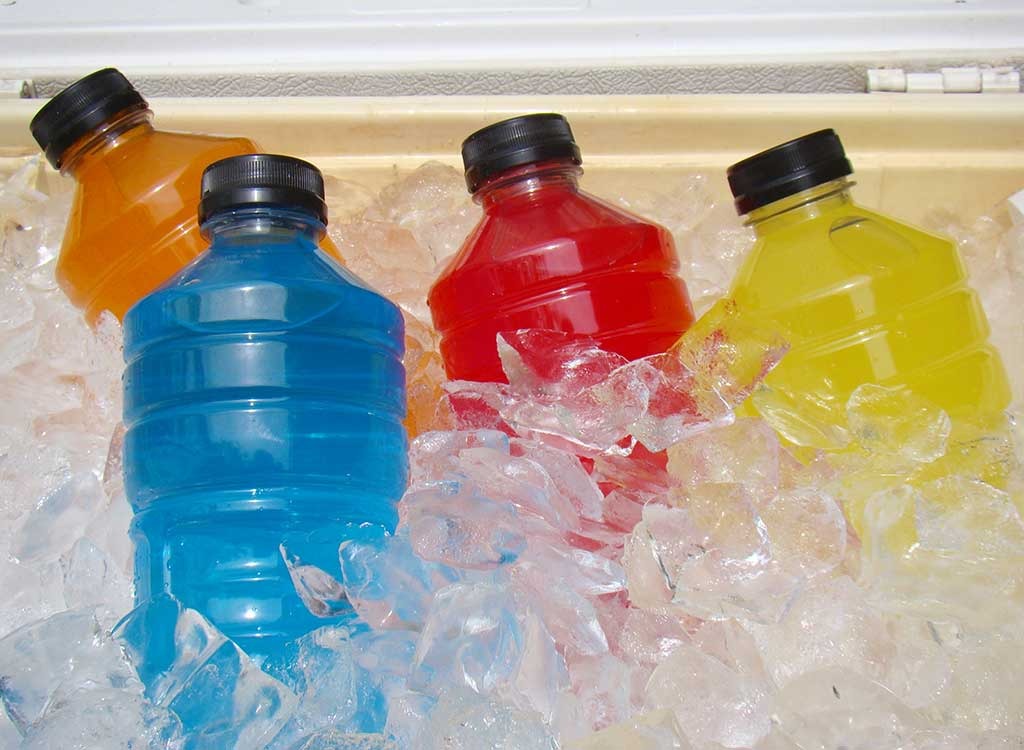
While caffeine is clutch for cranking through the workday, it has also been widely proven to have a positive effect on exercise. For that reason, many sports drinks have started to incorporate caffeine into their formula.
"There are a few things to be aware of when it comes to caffeinated sports drinks and exercise," says Gregg. "A little caffeine goes a long way. Consuming too much caffeine can cause rapid or abnormal heart rhythm, anxiety, upset stomach, heartburn, and increased blood pressure. All of these side effects negatively affect performance before and during exercise."
Caffeinated lemonade

Although caffeinated lemonade may sound like a new concept, you've probably seen it before. Starbucks sells it under the name "Refreshers," and you can make it at home. Much like energy drinks and soda, however, the problem with caffeinated lemonade lies in its high sugar content.
"A high sugar content paired with caffeine can be an unhealthy combination," says Gregg. "This can lead to rises in blood sugar, blood pressure, and heart rate."
So, even though caffeinated lemonade is arguably one of the most fun summer beverages on the menu, maybe consider that black coffee instead—or one of these 12 Tastiest Homemade Coffee Drinks From a Nutritionist.
